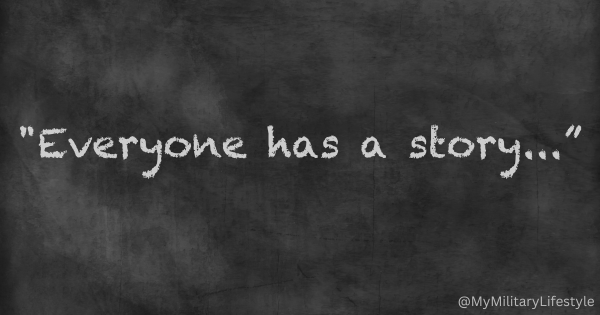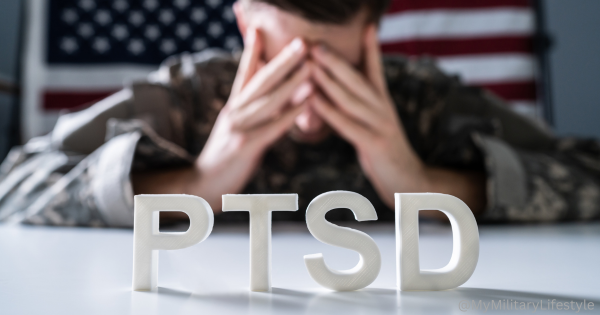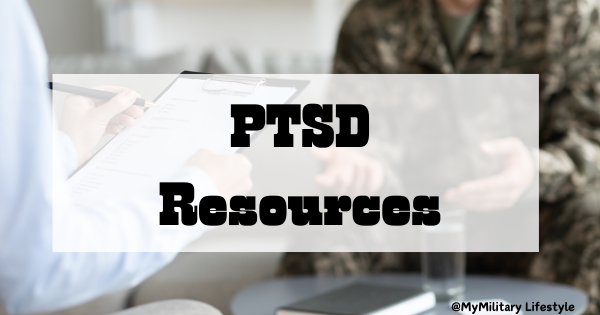PTSD Awareness Month
When my husband first joined the military, PTSD was rarely spoken about, and now there are so many resources available to help anyone who needs it! We want you to know that you are not alone! There are many resources available to you and don’t ever forget that you matter!
My husband served for over 22 years, and throughout our journey, we met and knew many people who have been impacted by PTSD whether directly or indirectly. Military members are immersed in the mentalities of death from the very beginning of their service time.
Due to the nature of this topic, not all military members are comfortable sharing their own stories and experiences. We want them to know that there are safe places and spaces where you can share. One of our friends was willing to share their story with us. So, here is their story…
“I remember being asked at MEPS (Military Entrance Processing Stations) if I would be willing to kill for my country, with a follow-up a little over 3 years later writing my first will and “death” letter preparing for my first deployment, yet I was barely even old enough to drink alcohol.
For my family, military service was multi-generational, beginning with my grandfather in WWII, and continued on with several of my uncles serving in Vietnam and Korea. I served before and throughout the majority of the global war on terrorism along with several of my cousins. Each of us served in various capacities, but each of us came back with varying levels of trauma, which has manifested itself into the classic symptoms of PTSD.
My first exposure to those symptoms was with my uncle who served in Vietnam. He dealt with it in the only way they knew how, which was to “man up” and kill the pain with the bottle. For many years, this was a “normal” reaction and I even saw some vestiges of it when I began my service.
I served many years later than my uncles, but I still carried those memories. Since I saw those issues with alcohol, I have chosen to not be much of a drinker, and even to the point that I haven’t had a drink in over 13 years.
My PTSD is relatively mild. It manifests in reoccurring nightmares and an extreme fear of being trapped. I have learned how to deal with those symptoms by overworking as an attempt to tire myself daily, so that I could just lie down and fall asleep at night.
When I was at my lowest point in life (work frustrations, marital frustrations, and being a new dad), I considered taking my own life. I was in a dark place and had started to cave into those dark thoughts, but I saw my newborn’s toy, which reminded me that I needed to be there for him. So, I reached out to my first sergeant and told him I needed help NOW. My Unit rallied around me, along with the support of friends and family, and got the help I needed and deserved. This isn’t my whole story, but it is an important part of my story!
This battle may feel like it is personal but it isn’t. Please use the resources that are available to all of us, even if it is hard to take that first step. It is important, because you are important! Resources may be a passive or active start to help you cope with your symptoms. Then, once you are passed the coping stage, find a way to thrive, and get beyond just surviving. For each of us, that journey is different, but you are never alone. We all served together and continue to serve each other.“
Our friend wasn’t ready to share his name with his story, as many of his friends and family still have no clue what he has experienced. We know that talking about this is important and my husband wanted to share this with all of you “From one vet to all of the others, I would much rather hear your story than your eulogy!”
Here are some PTSD resources…
- Veterans Crisis Line
- U.S. Department of Veterans Affairs
- National Center for PTSD
- Military OneSource
Explore More with My Military Lifestyle!











